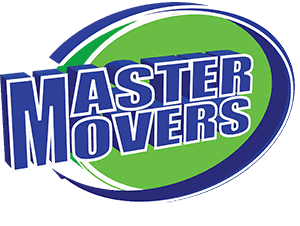Smart Ways to Save Money on Your Residential Move

Whether you're relocating across town or the country, moving can be a financial challenge. However, with the right preparations and insights, you can significantly reduce your expenses. Follow this guide, crafted by our expert team at Master Movers, "Movers with Manners", to learn how you can save money during your upcoming move.
Understanding the Basics of Residential Moving Costs
When planning a residential move, the first step is understanding the various costs involved. These costs can vary significantly based on several factors:
- Distance of the Move: Local moves are usually charged by the hour, whereas long-distance moves are typically priced based on the total weight of your belongings and the distance traveled.
- Volume and Weight of Belongings: The more items you have, the more it will cost to move them. This is due to the labor needed for packing, loading, and unloading, as well as the space taken up in the moving truck.
- Services Required: Costs will vary depending on whether you choose a full-service move, where the moving company handles everything from packing to unpacking, or a more basic service where you do some of the work yourself.
Pre-Move Strategies to Minimize Expenses
Preparation is key when aiming to reduce the costs associated with moving. Here are several effective strategies that can help you save money before the actual move day arrives:
Decluttering: Sell, Donate, or Dispose
One of the easiest ways to decrease your moving costs is by reducing the number of items you need to move. Here's how you can declutter effectively:
- Assess Every Item: Go room by room and decide what you really need to keep. If you haven't used something in over a year, it might be time to let it go.
- Sell Items: Platforms like eBay, Craigslist, and Facebook Marketplace are great for selling items you no longer need. This can add some extra funds to your moving budget.
- Donate: Giving items to charity not only clears out your space but also helps those in need. Plus, you can claim a tax deduction.
- Dispose: For items that are neither sellable nor donatable, consider environmentally friendly disposal methods.
Acquiring Affordable Packing Materials
Packing materials can be surprisingly costly. Effective packing methods to cut down on these expenses:
- Use Original Boxes: If you’ve kept the original boxes for electronics or appliances, reuse them for optimum protection.
- Visit Local Stores: Many stores are willing to give away boxes that they would otherwise recycle. Just ask!
- Utilize Household Items: Items like towels, blankets, and clothing can serve as alternatives to bubble wrap for packing fragile items.
Creating a Budget and Checklist
Keeping track of your moving expenses with a detailed budget can help you identify areas where you can cut costs:
- List All Expected Expenses: Include everything from packing supplies to moving insurance.
- Set a Spending Limit: Knowing your limit can help you make more cost-effective decisions.
- Monitor Your Spending: Keep receipts and make notes of all expenditures to ensure you stay within budget.
Choosing the Right Moving Service
Selecting the appropriate moving service is crucial for managing your expenses effectively. Master Movers offers a variety of options tailored to different needs and budgets. Understanding what each service entails will help you make an informed decision that aligns with your financial goals.
Types of Moving Services Offered by Master Movers
- Full-Service Move: This all-inclusive option is the most convenient as it covers all aspects of moving, from packing and unpacking or loading to transportation and unloading. Ideal for those looking for a stress-free move.
- Partial Service Move: If you prefer to handle some tasks yourself, such as packing, and only require help with loading, transportation, and unloading, this service reduces costs while still providing professional assistance.
Comparing Costs: Full-Service vs. Partial Service
- Full-Service Moves are typically more expensive due to the comprehensive range of services included. However, they save a significant amount of time and labor on your part.
- Partial Service Moves cost less but require more personal involvement, which might not be ideal for everyone. It’s a good choice if you are able to devote time and energy to packing and organizing.
How To Choose the Right Service Package for Your Needs
- Assess Your Budget: Determine how much you are willing to spend on moving services.
- Evaluate Your Schedule and Capacity: Consider whether you have the time and ability to undertake significant portions of the moving process yourself.
- Understand the Value of Your Time: Sometimes the cost of a full-service move can be justified by the amount of stress and labor it saves, making it a worthwhile investment.
Packing Smart: Save Money and Reduce Stress
Efficient packing not only protects your belongings during the move but also saves money by reducing the amount of time and materials needed. Here are essential tips to pack intelligently and cost-effectively:
Essential Packing Tips to Protect Your Belongings
- Pack Room-by-Room: Tackling one room at a time can help keep you organized and ensure nothing is missed or misplaced.
- Use Sturdy Boxes: Choose boxes strong enough to hold their contents without breaking. Reinforce the bottom of each box with packing tape for extra security.
- Heavier Items on the Bottom: Place heavier items at the bottom of boxes and lighter items on top to prevent damage.
How to Effectively Label Boxes for Efficiency
- Label by Room and Content: Clearly label each box with its contents and the room it belongs to. This will speed up the unpacking process and help movers know where to place each box in your new home.
- Use Color Coding: Assign a color to each room and use colored stickers or tape on the boxes to match. This visually aids you and the movers in quickly sorting boxes on moving day.
Where to Find Free or Low-Cost Packing Supplies
- Local Businesses: Grocery stores, bookstores, and liquor stores often have a surplus of boxes that they're willing to give away for free.
- Online Marketplaces: Websites like Craigslist, Freecycle, or community Facebook groups often have listings from people giving away moving supplies and boxes.
- Use What You Have: Utilize baskets, suitcases, and bins that you already own to cut down on the number of boxes you need.
- during these times. By moving mid-month, you might secure better rates.
Handling Utilities and Services: Avoid Overlaps and Penalties
Efficient management of your utilities and services is crucial to avoid unnecessary costs when moving. Here’s how to coordinate your utilities to ensure a seamless transition without financial penalties or service interruptions.
When to Notify Service Providers of Your Move
- Early Communication: Contact your utility providers (electricity, water, gas, internet, cable) at least two to three weeks before your move. This advance notice gives them time to schedule disconnection at your old home and set up services at your new location.
- Final Readings: Arrange for a final meter reading on your moving day to ensure accurate billing.
How to Handle Utility Transfers and Cancellations
- Transfer vs. Cancellation: Determine whether you need to transfer services or completely cancel and start new services depending on your provider’s coverage area.
- Service Transfers: If your provider operates in your new area, transferring services may be more straightforward and can sometimes avoid new activation fees.
Tips for Efficient Service Transitions Without Added Costs
- Overlap Services: Having an overlap of services by a day or two can prevent scenarios where you find yourself without essential utilities in your new home.
- Avoid Auto-Renewal Pitfalls: Review your current contracts for any auto-renewal clauses that might create unwanted extensions and additional charges.
Dealing with Moving Insurance: What’s Necessary?
When hiring moving services, ensuring the safety of your belongings is paramount. Moving insurance plays a critical role in this, but understanding the options and determining what is necessary can be complex.
Understanding Different Types of Moving Insurance
- Released Value Protection: Often included at no additional cost, this basic coverage offers minimal protection, reimbursing you per pound per item damaged.
- Full Value Protection: More comprehensive, this insurance covers the repair, replacement, or reimbursement for the item's current market value but comes at an additional cost.
- Third-Party Insurance: If you have valuable items that exceed the moving company’s limits, third-party insurance might be necessary.
Evaluating Your Need for Additional Coverage
- Assess Value of Belongings: If you’re moving items of substantial monetary or sentimental value, consider higher coverage options.
- Risk Assessment: Evaluate the potential risks involved in your move distance, destination, and the handling required to determine the appropriate level of coverage.
Cost Implications of Moving Insurance
- Budgeting for Insurance: Include the cost of insurance in your moving budget, especially if opting for Full Value Protection or third-party insurance.
- Cost vs. Peace of Mind: While adding insurance increases your moving costs, the peace of mind knowing your belongings are protected can be worth the investment.
Post-Move Cost Saving Tips
Adjusting to your new home involves more than unpacking. Here are some strategies to manage your finances effectively after the move:
Unpacking Strategies to Save Time and Effort
- Prioritize Rooms: Start with essential rooms such as the kitchen and bathroom, which will help you settle in more quickly.
- Systematic Unpacking: Unpack methodically to avoid the need to purchase items you already own but cannot find.
Setting Up Your New Home Efficiently
- Energy Efficiency: Implement energy-efficient practices, such as LED lighting and smart thermostats, to save on utility bills.
- DIY Home Improvements: Consider tackling manageable projects yourself, like painting or minor repairs, to save on labor costs.
Resource Management: Saving on New Home Expenses
- Recycle Packing Materials: Reuse or sell packing materials to recoup some of the moving expenses.
- Review Home Service Providers: Compare rates for local services like internet and landscaping to ensure you are getting the best deals.
Key Takeaways: Your Budget-Friendly Move
To recap, managing a budget-friendly move requires careful planning, efficient packing, smart timing, and choosing the right moving services.
Master Movers, with our reputation as "Movers with Manners," is dedicated to helping you navigate this process smoothly.
Our Latest Blog





